Implications of the Public Procurement Act on Public Entities: Navigating the New Era of Transparency and Accountability
The South African public sector is on the cusp of a significant shift in its procurement practices with the enactment of the Public Procurement Act, 28 of 2024. This groundbreaking legislation, set to take effect on a date to be proclaimed by the President, introduces a unified framework for public procurement, emphasising transparency, accountability, and efficiency.
As a Product Manager for BEE123 Verification Software, I am keenly aware of the profound implications this Act holds for public entities. This article delves into the key provisions of the Act, highlighting its impact on procurement processes and outlining how technology can be a powerful ally in navigating this new era of compliance.
A Unified Approach to Procurement
The Public Procurement Act seeks to harmonise procurement practices across all public entities, including government departments, constitutional institutions, municipalities, and public entities listed in Schedules 2 and 3 of the Act. This unified approach aims to:
- Promote consistency and fairness: By establishing standardised procurement procedures, the Act ensures a level playing field for all suppliers, fostering fair competition and promoting value for money.
- Enhance transparency and accountability: The Act introduces stringent measures to combat corruption and promote ethical conduct, ensuring that public funds are utilised responsibly and effectively.
- Drive economic transformation: Through a robust preferential procurement framework, the Act aims to empower historically disadvantaged groups, particularly black-owned businesses, fostering greater economic inclusion and participation.
- Embrace technological advancement: The Act recognizes the pivotal role of technology in modernising procurement systems, improving efficiency, and enhancing transparency.
Key Provisions for Public Entities
The Act introduces several key provisions that directly impact public entities:
- Establishment of a Procurement Officer: The Public Procurement Office is established within the National Treasury and is responsible for ensuring adherence to the Act, developing measures to uphold procurement integrity and enhance transparency in procurement processes.
- Establishment of a Public Procurement Tribunal: This independent body will handle disputes and review procurement decisions, ensuring fairness and accountability.
- Investigation and Penalties for Misconduct: The Act outlines clear procedures for investigating and penalising financial misconduct, including fines and imprisonment for individuals involved in corrupt practices.
- Debarment of Bidders: Suppliers found guilty of misconduct, such as providing false information or failing to meet contractual obligations, can be debarred from participating in future procurement processes.
- Preferential Procurement: The Act mandates the implementation of preferential procurement policies, including set-asides and pre-qualification criteria, to promote economic transformation and empower black-owned businesses.
- Local Production and Content: The Act emphasises the importance of supporting local industries by requiring compliance with designated local production and content thresholds.
- Technology in Procurement: The Public Procurement Office will develop a technology-based procurement system to streamline processes, enhance transparency, and combat corruption. Public entities will be required to utilise this system and embrace technology in their procurement activities.
Embracing Technology for Seamless Compliance
The Public Procurement Act places a strong emphasis on leveraging technology to enhance procurement processes. This is where BEE123 Software can be a valuable asset for public entities.
The BEE123 software solutions are designed to:
- Automate compliance processes: Simplify legislative compliance by automating key tasks, such as data collection, analysis, and reporting.
- Enhance transparency and accountability: Procurement activities and suppliers are visible and categorised via visual interactive dashboards, promoting transparency and reducing the risk of corruption.
- Facilitate preferential procurement: Support the implementation of preferential procurement policies by providing tools to track and monitor compliance with set-asides and pre-qualification criteria.
- Promote local content: Assist in identifying and sourcing goods and services from local suppliers, supporting the growth of domestic industries.
- Comprehensive supplier database: Ensure efficiency of process and reduced administration, via our extensive database of curated and indexed B-BBEE certificates and affidavits.
Navigating the Future of Public Procurement with Confidence
The Public Procurement Act represents a significant step forward in modernising and strengthening South Africa’s public procurement system. While the Act introduces new complexities, it also presents opportunities for public entities to improve efficiency, enhance accountability, and contribute to economic transformation.
By embracing technology and partnering with experienced solution providers like BEE123, public entities can navigate this new landscape with confidence and ensure that their procurement processes are compliant, transparent, and contribute to a more inclusive and prosperous South Africa.




